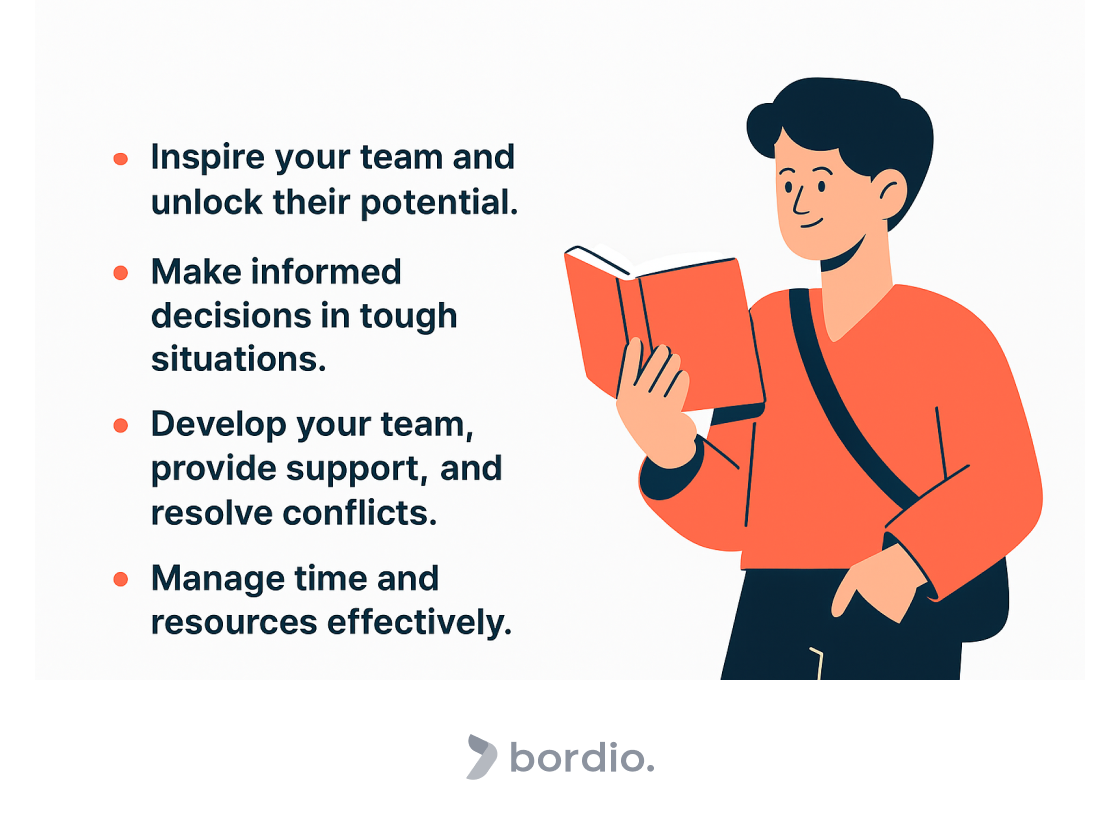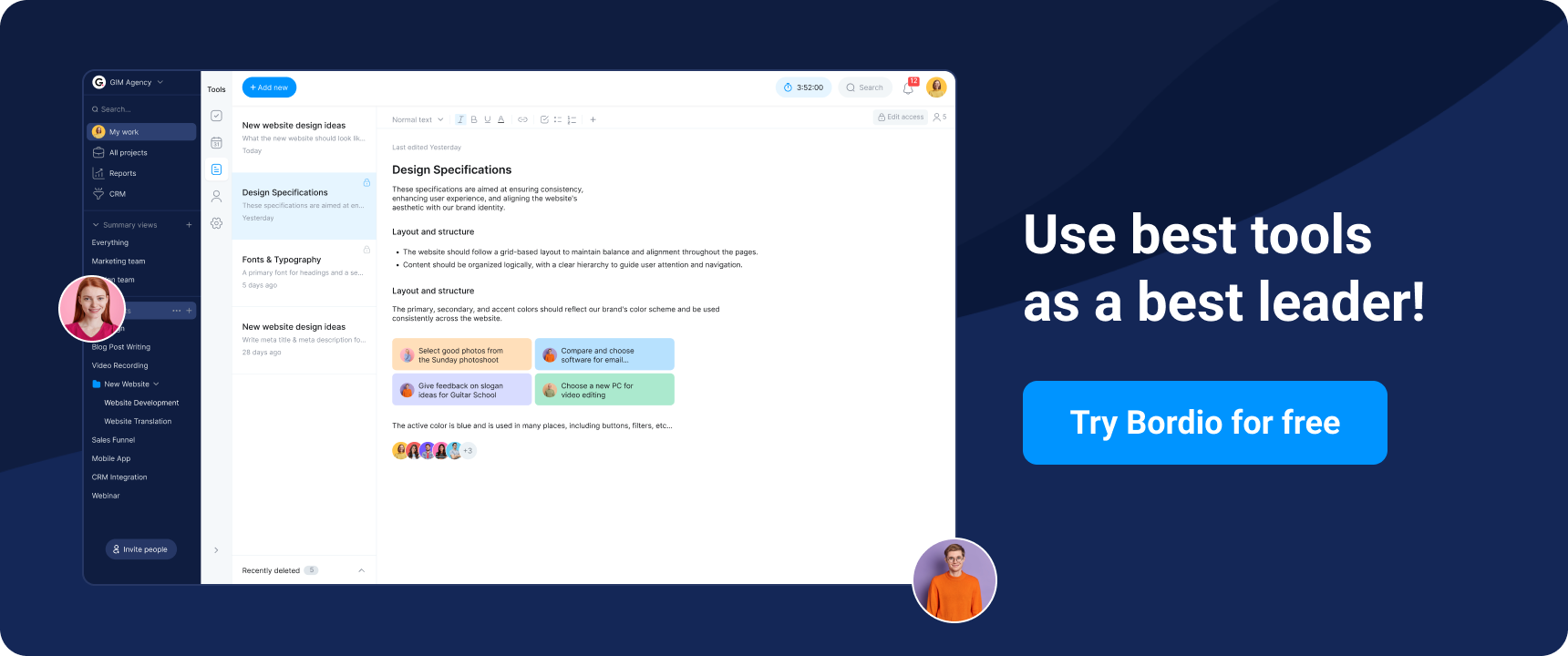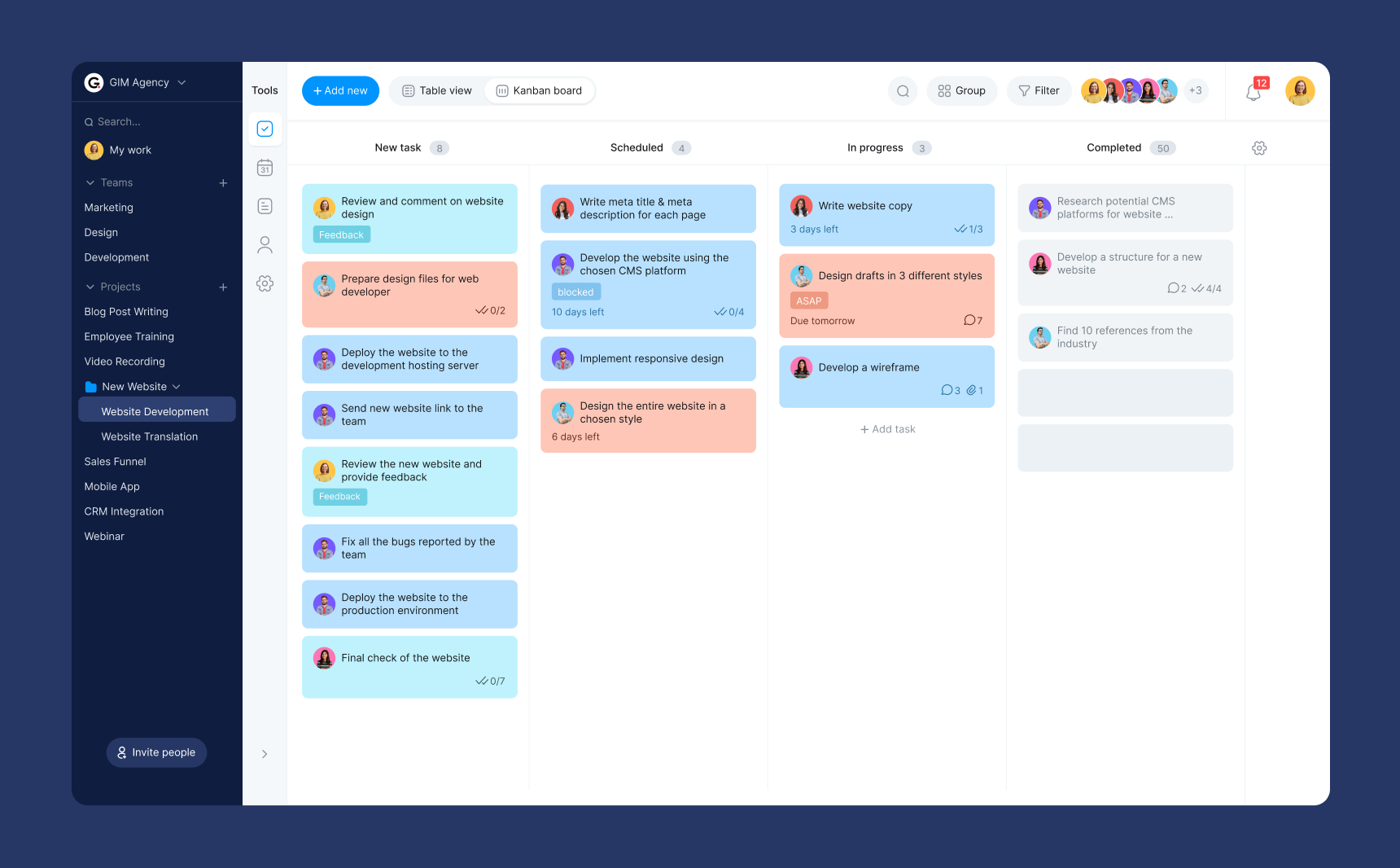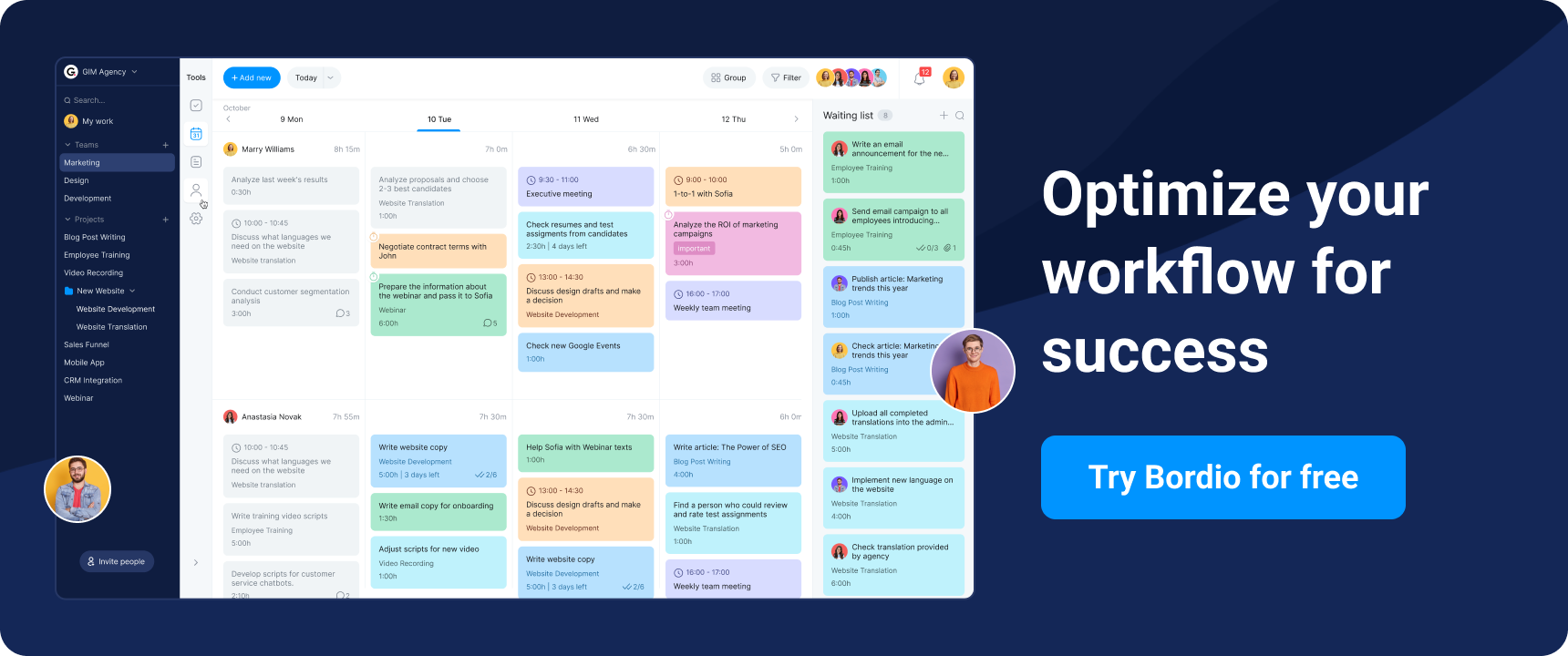Being a successful team leader isn’t just about making all the decisions. It’s also about supporting your team and creating good team dynamics. Leading effectively creates a space where everyone feels important, appreciated, and driven to work together towards shared goals. Great team leaders have unique traits that help them achieve while helping each member grow and develop. This article will discuss seven essential qualities that set apart successful team leaders and explain how these qualities make the team work better together and strengthen their bond.
Key qualities of a good team leader
You need to know how to set up the right environment and group dynamics to get your team running smoothly. A successful leader brings many essential qualities to the table, like the parts of a mechanism that need to work together perfectly. These qualities will help you become a great team leader:
Never stop learning
Learning is a crucial leadership skill. A leader must develop skills such as time management and task planning. Constant self-development is an integral part of success. For development, we can offer the following skills:
- Ability to inspire and motivate your team to achieve goals. This includes seeing potential in people, stimulating it, and ensuring it is realized.
- Making decisions in difficult situations and solving problems. This involves analyzing a situation, considering alternatives, and making informed decisions.
- Team development and management include solving problems, coaching and supporting team members, and resolving conflicts.
- Ability to manage your time and the time of your team effectively. This includes maintaining priorities, scheduling and tracking tasks, and using resources effectively.
If you don’t learn or develop, great people will not stay with you long. It is essential to hone old skills and learn new things, for example, from other team leaders. We advise you to find special courses and exchange experiences with specialists from different companies to improve your technical expertise.
Take responsibility
Great leaders take responsibility for everything that happens around them. Even if a subordinate makes a mistake, it is your responsibility as a leader. This is a part of healthy working relationships at work. As a leader, you are ultimately responsible for the result of your team’s efforts. Instead of blaming others or deflecting responsibility, effective leaders acknowledge mistakes, learn from them, and take proactive steps to address issues that arise.
This may involve providing additional training or guidance to team members, implementing process improvements, or reassessing project priorities. By taking ownership of both successes and failures, leaders demonstrate integrity, earn the trust of their team members, and foster a culture of accountability and continuous improvement.
Lead by example
As mentioned before, leaders must show their teams how to keep learning and growing independently. But it’s just as important to be an excellent example of more superficial things like discipline, acting, and following work rules. You shouldn’t expect your team to do something you’re not doing yourself. For instance, you can’t always be late if you want everyone to be on time.
Consistent in acting and sticking to the rules at work are significant parts of being a good leader. When you’re punctual, act professionally, and follow the company’s rules, you’re setting clear standards for your team. This clarifies what’s expected from everyone and builds a workplace where people respect each other. Leading by example, doing things the right way, showing your team what’s important, and inspiring them to do their best and keep up the excellent work.
Help your teammates to succeed
Being a good leader means knowing your team comes first. Imagine that you have only twenty-four hours a day and can complete a minimal amount of work daily, but if you have a team of five people, the total completed work can increase significantly or not. Even if you can’t do everything alone, using everyone’s skills and effort can make a difference. When you split up tasks smartly among your team and make sure everyone’s doing what they’re best at, you’ll see better teamwork and more stuff getting done.
You have to give clear directions, set expectations, and ensure everyone has what they need to do their job right. Leaders must also spot and fix any problems that slow the team down. For example, providing good work resources, such as program planning and various work automation mechanisms, is important.
Focusing on your team’s needs and helping them succeed will boost the team’s productivity, achieve great results, and make your organization a success. Your primary job as a leader is to ensure that every team member knows exactly what to do.
Delegate tasks and projects smartly
As a leader, you must learn to delegate. If you delegate poorly, your team’s effectiveness will never reach its peak. You need to find challenging tasks and projects for each of your subordinates, but they must be suitable to the person’s level and capabilities and not impossible.
You need to know your team’s strengths and weaknesses to delegate appropriately. Don’t assign a project to someone who has never demonstrated leadership skills. The worst thing you can do for your employees is give them the wrong project manager. First, the project will not be completed on time. Second, your people will be disappointed, and some may eventually leave the company.
It is important to use the right software for project management and delegation. We recommend Bordio, which provides a wide range of tools that greatly simplify the process of delegating tasks within project management.
Bordio has an intuitive interface that makes it easy to create tasks and assign them to team members in just a few clicks. You can quickly create a to-do list of tasks and assign them to specific team members, ensuring a clear division of responsibilities. Next, you set due dates for each task, facilitating effective time planning. This feature helps not only delegate tasks but also ensures they are completed on time, which significantly increases team productivity and leads to the successful completion of the project.
In addition, Bordio allows you to track the progress of tasks and offers notification functionality that helps keep the team up to date with important events and deadlines. You can set up notifications about upcoming tasks and their due dates, which helps minimize the risk of missing important deadlines and ensures timely response to changes in project plans.
Be honest but tactful
Being a leader means dealing with difficult situations, initiating difficult conversations with employees whose performance is not as good as expected, and firing people; this is the hardest thing for some managers. You need to be honest, but at the same time, you need to be tactful because the same idea can always be conveyed in different ways – either rudely or friendly.
Even if we are talking about simple feedback on a task, it can be challenging to present the information correctly. We can recommend using soft methods in such a matter, such as a feedback sandwich, where you alternate good and bad news. But in some situations, you will have to be quite challenging, which is inevitable. Your development will help you look at such difficulties from a different perspective, and this experience will help you better understand what and how to present to people in the future.
Always listen to your people
Some people think leaders are the smartest and need to speak, while others need to listen. That’s wrong. Leaders are not always the smartest in the room, but they are the ones who make the final decision. This means they usually need to collect feedback and insights from others, analyze them, and decide.
Always listen to your people, especially when they have arguments, regardless of your management style. It doesn’t mean that you will do what they ask. It means that you will consider their opinion and thoughts before deciding. And then, if you make another decision, you need to explain why you made it. Never leave people without an appropriate explanation.
Being good at communication is important when dealing with tough situations. Leaders need to get their point across in a way that’s clear and kind but also strong and decisive when needed. Leaders can keep good relationships with their team members when they handle these talks with understanding, carefulness, and a professional attitude. This is key when they need to talk about performance problems or make hard choices.
How do you develop leadership skills?
Building leadership skills takes a well-rounded approach, focused on two main things: always learning and growing and using feedback to make changes. In the learning and growing part, you must keep adding to what you know and improving what you can already do. This means looking for chances to learn from books, classes, workshops, and programs where mentors can guide you. You can better grasp leadership ideas, communicate well, and understand your and others’ feelings by staying curious and open to new ideas.
Also, doing things that help you grow personally, like mindfulness meditation and thinking deeply about your experiences, helps you know yourself better and handle your emotions, which is super important for leading effectively. There are ten simple stages that you will go through if you want to improve your skills effectively – let’s call it a plan for upgrading your leadership skills:
Self-assessment
The first step is recognizing the validity of strengths, weaknesses, values, and goals. This is the beginning of the whole process because understanding yourself and your goals is leadership development.
Setting сlear goals
The second stage is developing specific and measurable leadership development goals. Setting clear goals provides focus and direction for success in developing leadership skills.
Looking for ways to learn more
The third step is finding opportunities to learn more about leadership. This could mean reading books or articles, attending seminars or classes, getting certifications, or joining activities designed to improve your leadership skills.
Working on good communication
The fourth step is all about improving one’s talking and listening skills. Leaders work on hearing what others have to say, sharing their thoughts and ideas clearly, and giving helpful feedback to people.
Relationship building
The fifth stage ensures strong relationships with colleagues, subordinates, mentors, and other organization members. Create a supportive and inclusive environment of agreement, trust, and respect among team members.
Developing emotional intelligence
Stage six is about building up your emotional intelligence. This means getting better at understanding your own feelings, controlling your reactions, feeling what others are feeling, and being good at dealing with people. These skills are super important for being a great leader.
Asking for feedback
The seventh step is all about asking people for their opinions on how you lead and how you’re doing. Being open to and learning from criticism can help you get better at leading by understanding what you’ve been through and how you can improve.
Adopting leadership roles
The eighth step is voluntarily accepting leadership roles within an organization, community, or professional association. This allows you to practice and improve your leadership skills in a hands-on environment.
Leadership example
Stage nine involves demonstrating the values and behaviors that a leader wants to see in others. Leaders model integrity, integrity, and responsibility in their actions.
Always checking and adjusting
The last step is to monitor how you’re doing as a leader and make changes when needed. Leaders should always look at their progress, ask others how they’re doing, and change their approach to ensure they meet their goals.
Can everyone become a good team leader?
While not everyone may naturally possess the traits commonly associated with effective team leadership, many people can develop and improve their leadership skills with dedication, effort, and the right resources. Here are some important things to think about:
Born leaders vs. Learning to lead:
Some people might naturally be good at leading because of their personality—like talking to people, understanding others’ feelings, and making decisions quickly. However, being a leader is also about learning skills that anyone can improve. This can happen through training, practicing, and gaining experience.
Knowing yourself and always improving:
Good leaders usually know themselves very well, meaning they understand what they’re good at and need to work on. They’re also open to hearing how they can do better and always look for chances to grow and improve at what they do.
Learning and getting trained:
Going to school, attending workshops and seminars, and joining leadership programs can give people the knowledge and tools they need to be great leaders. These opportunities can teach them different ideas on leading, talking, listening effectively, solving disagreements, and other important skills.
Getting real experience:
Leading and practicing are key to improving leadership. Whether taking on leadership positions officially or through volunteering, people can get important experience. This includes managing teams, making choices, and solving problems.
Learning from mentors:
Having a mentor or coach can be really helpful for people who want to become leaders. Mentors can talk about what they’ve been through, give advice, and help with overcoming obstacles and building up leadership skills.
Always getting better:
Being a leader means always working to grow and get better. Good leaders are always looking for ways to improve what they do, adjust to new situations, and keep up with the latest ideas and best ways of leading.
Staying true to yourself:
Leaders must ensure their actions and choices match their beliefs and values. Being real and honest is key to gaining the trust and respect of your team members.
Final Thoughts on Team Leadership
Becoming a great team leader is a path that takes real commitment, hard work, and always looking to get better. Even though some people might naturally have qualities that make them good leaders, it’s key to remember that anyone can build and improve their leadership skills with time.
Good leadership isn’t just about making all the decisions or showing who’s boss. It’s about motivating and lifting up others to reach shared goals. A great leader creates a space where everyone trusts each other, works together, and respects one another. In this kind of place, team members feel important, driven, and supported in their work. By setting a good example, speaking clearly, and putting their team’s needs first, leaders can build a strong team spirit and make a real difference in their organizations.









